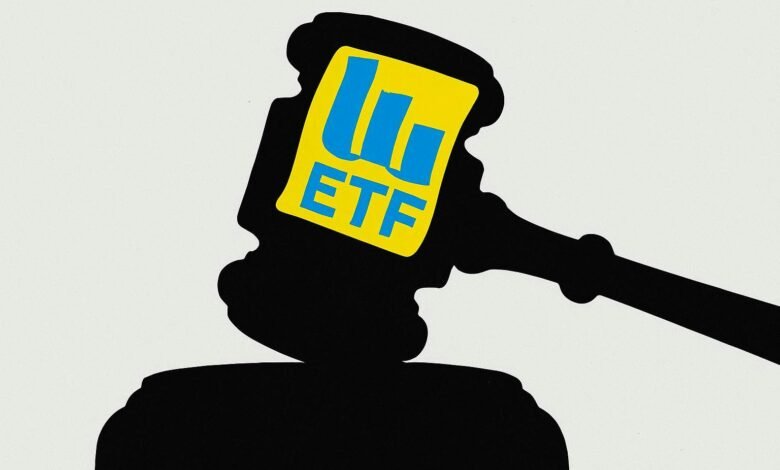Azoria’s ETFs Shut Down Soon After Launch Over Legal Troubles

What’s going on here?
Azoria Capital is closing its recently launched ETFs, the Azoria 500 Meritocracy and Azoria Tesla Convexity, just months after their debut – and the move comes with rare transparency around ongoing legal battles involving a prominent executive.
What does this mean?
Most ETF closures tend to fly under the radar, but Azoria’s abrupt exit is turning heads thanks to surprisingly direct SEC filings. The firm’s board pointed to unresolved legal disputes involving a company principal as the core reason for winding down its two funds, which together managed over $41 million. Legal challenges include conflicts with the executive’s former firm, Greenlight Capital, and a case involving the Federal Open Market Committee. While the executive argues these lawsuits shouldn’t impact operations, he suggested the shutdown ties back to internal disagreements over perspectives like diversity and immigration. Tidal Financial, Azoria’s launch partner, said it wasn’t privy to the details but emphasized its support for a range of politically themed funds. By explicitly linking legal turmoil to its ETF closures, Azoria is spotlighting the evolving role of transparency – and the risks it can bring – in the ever-intensifying ETF landscape.
Why should I care?
For markets: Transparency takes center stage for ETF investors.
It’s unusual for firms to be so frank about legal concerns when winding down funds. The US ETF industry, already boasting $8 trillion in assets and more than 250 closures in 2024, is focusing even more on governance and disclosure standards. Azoria’s situation sets a new bar for openness but also underlines how high-profile legal drama can shake investor trust and send capital searching for safer bets.
The bigger picture: A new era for disclosure and product risk.
As transparency becomes a bigger theme in the ETF industry, regulatory attention is zeroing in on the politics and personalities behind each launch. Offering so much detail about internal disputes might help investors make informed calls, but it also brings fresh challenges for fund managers and white-label partners. With more politically charged funds hitting the market, the industry may need to rethink how disclosure shapes investor confidence in this new landscape.
IN PARTNERSHIP WITH THE AVERAGE JOE
Get the newsletter that rich investors actually read
The Average Joe strips markets down to what matters, giving you financial insights you’ll actually use.
It’s read by more than 200,000 people… and roughly one in five are millionaires.
Do they read it because they’re rich, or are they rich because they read it?
We don’t run those studies.






